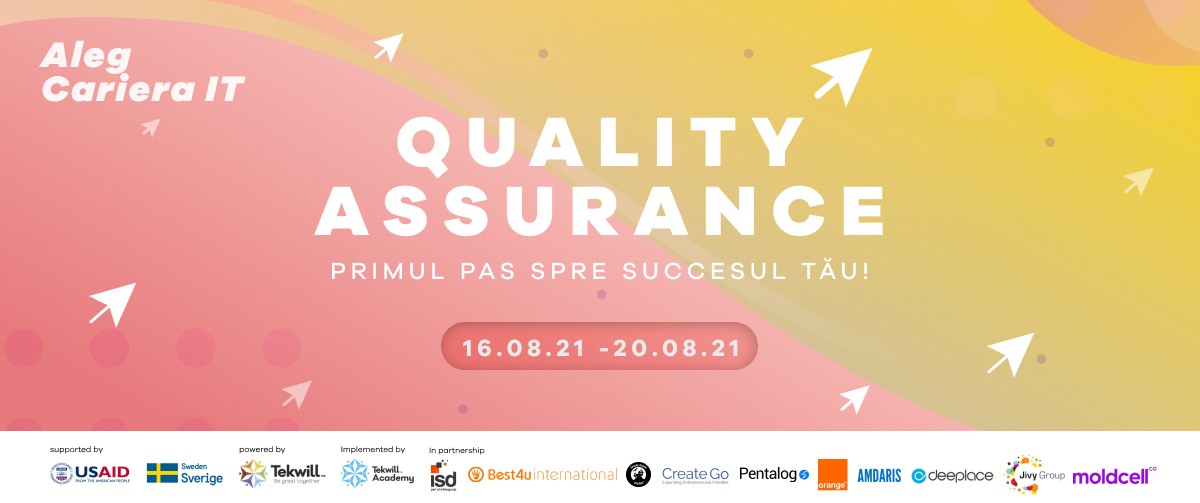She trained 35 teachers in the field of advanced teaching technologies with ICT, developing their level of IT literacy and giving them the opportunity to gain a complete group learning experience, and finally benefited from certificates attesting to the knowledge gained. We are talking about the doctor in pedagogy and the associate professor of the State University of Comrat Tatiana Velicova, who initiated and developed a complete course of E-teaching, intended for teachers from the southern region of the country. The innovative idea was implemented due to a project won under the “UTeach” program, carried out with the support of the United States Agency for International Development (USAID) and Sweden in the Tekwill project, implemented by the National Association of ICT Companies.
Tatiana Velicova, Associate Professor, PhD, Comrat State University: “The skills and competencies of future specialists to integrate and succeed in the century of innovation are developed even from university benches, and teachers have a significant role in this process. Moreover, the global pandemic and the restrictions of the last year have changed the traditional educational process, and online study has become a new normal. For this reason, I wanted to initiate this course so that innovative and modern teaching tools are adopted in the teaching process by a large number of teachers.”
E-teaching course on the Udemy international platform
Thus, between May 2020 and February 2021, the professors who carry out teaching activities at the Faculty of Economics, the Faculty of Agrarian Tourism, the Faculty of National Culture and the Faculty of Law at the State University of Comrat were trained based on the methodological manual of E-teaching, developing skills to successfully introduce new IT technologies in the educational process with students. At the same time, within the e-Teaching project, another 95 teachers participated in 4 thematic webinars. In order to ensure the resilience of the project, the strategy “Implementation of E-Teaching at the State University of Comrat in 2021 – 2025” was developed, in order to train in the innovative teaching methodology all teachers of the State University of Comrat.
Tatiana Velicova, associate professor, doctor, Comrat State University: “The E-Teaching program was a colossal success. After the registration period, many teachers desired to participate in the course and receive training in innovative teaching methodologies. For this reason, the course I took was accepted and placed on Udemy - an international online learning platform for professionals who want to develop their professional skills.”
During the E-Teaching course, implemented within the “UTeach” program, in the development of continuing education lessons for teachers, a group was created on Facebook with all participants for the first time at the State University of Comrat. They had the opportunity to discuss and exchange experiences about online teaching tools and platforms to facilitate the teaching process and to express their opinion about the software products they use in the educational process. During the course, teachers tested several learning platforms, where they learned the best practices in using different interactive tools.
Tatiana Velicova, Associate Professor, PhD, Comrat State University: This grant offered through the "UTeach" program, implemented by the Tekwill project, gave us the opportunity to create the strategy "Implementation of E-Teaching at Comrat State University in 2021 - 2025", which will successfully digitize the educational process within the university. The strategy will make it possible to familiarize teachers with the difficulties identified in the implementation of information technologies in the educational process and find solutions.”
Currently, another group of 43 people, who have expressed interest and registered, are participating in a new E-Teaching course, which takes place between April and May 2021. The participants are high school teachers, colleges and vocational schools from Comrat, Ceadir-Lunga and Vulcanesti, but also three teachers from Ukraine.
Irina Oriol, Deputy Coordinator, “Tekwill” project: “Initiatives to support teachers in the Republic of Moldova continue to revive the quality of university training in the field of information technologies. At the same time, we managed to improve the technical material base of universities through the "UTeach" program, by offering various equipment for organizing lessons, but also for IT projects developed by students, under the guidance of mentors throughout the implementation.”
In January 2020, the TEKWILL project launched the second edition of the “UTeach” program, in which university lecturers had the opportunity to propose unique training programs, innovative teaching approaches, extracurricular projects and initiatives capable of modernizing the quality of university training as regards ICT. The initiative is part of the ‘’Tekwill Ambassadors Program’’ and provides development opportunities and resources for all those interested in achieving performance in the field of Information and Communication Technology (ICT). The program is carried out with the support of the United States Agency for International Development and Sweden in the project “Development of the Center of Excellence in ICT Tekwill”, implemented by the National Association of ICT Companies.











